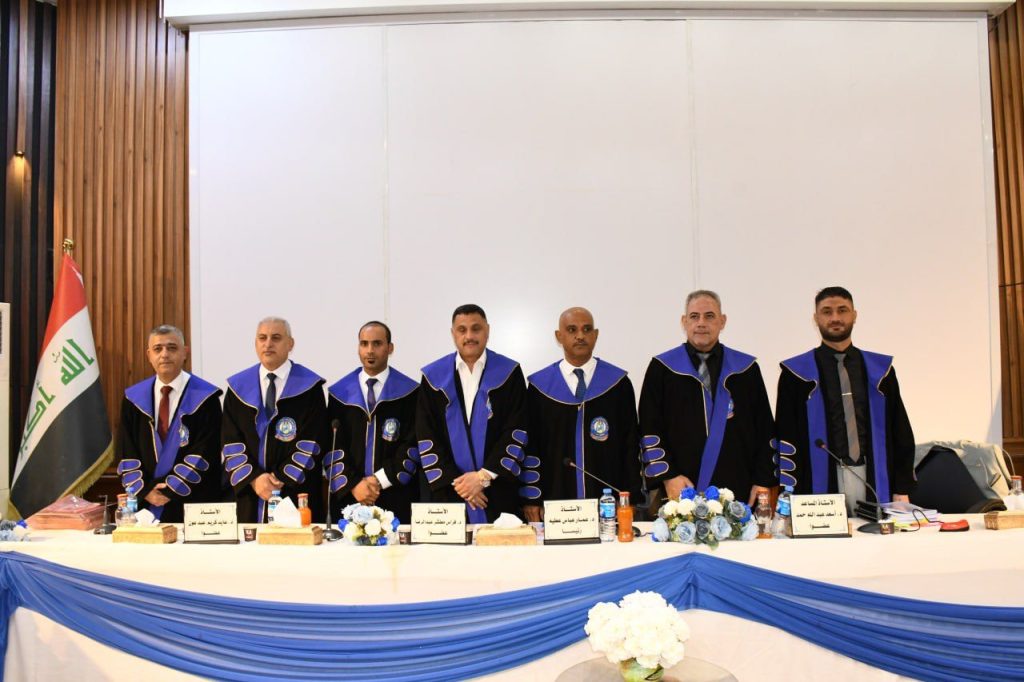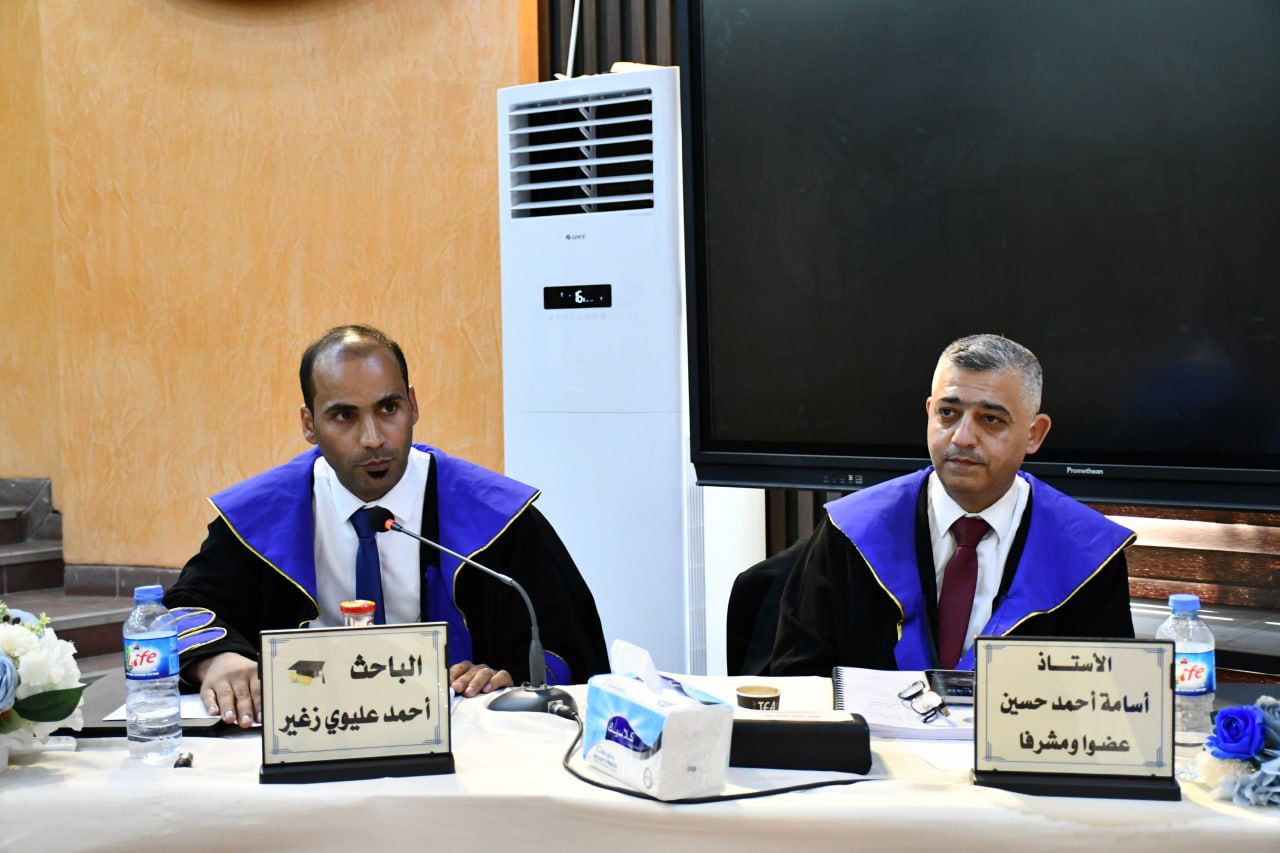A PhD dissertation at the University of Baghdad, College of Physical Education and Sports Sciences discusses
(Designing a computerized electronic device to measure the output of anaerobic power of the muscles of the upper limb for university students) submitted by the researcher (Ahmed Uleiwi Zughair Raddad)
Under the supervision of (Prof. Dr. Osama Ahmed Hussein Al-Taie)
For the accademic year 1444/2023
The discussion committee consisted of
Professor Dr. Ammar Abbas Attia / Chairman
Professor Dr. Firas Mutashar Abdul-Reda / member
Professor Dr. Ayed Karim Abd Aoun / member
Asst. Prof. Dr. Asaad Abdullah Hamad / member
Asst.Prof. Dr. Omar Khaled Yasser / member
Professor Dr. Osama Ahmed Hussein / member and supervisor
The discussion was attended by the Dean of the College, Prof. Dr. (Sabah Qasim Khalaf) and a group of college professors
As the dissertation discussed designing a computerized electronic device to measure the output of the anaerobic power the muscles of the upper limb for university students
The study aimed at designing a device to remotely measure the anaerobic power of the muscles of the upper limb for the bench press and frontal lean tests, as well as designing a computerized program for the device in the language (C++) with the multiple capabilities depending on the power equation, verifying the validity and stability of the two tests and finding their standard scores and levels in a sequential manner
The researcher used the descriptive method. As for the selection of the research community, it was the intentional method, and it was represented by male students in the College of Physical Education and Sports Sciences at the University of Baghdad for the academic year (2022-2023), whose number was (1225) students. The research sample was chosen randomly of (280) students, with a rate of (23%). (240) students carried out the pressure test on the bench with a percentage of (86%) of the research sample and (20%) of the research community. (40) were excluded, whereas (257) students carried out the forward-reliance test, (92%) of the research sample and (21%) of the research community, and (23) students were excluded because of the lack of seriousness of the testers in performing the test, or because of their wrong implementation of the test conditions. The search engines (PubMed, Elsevier, Springer, Google Scholar, Taylor & Francis, Research Gate) were used to get studies related to the subject of the research. A special device was manufactured to measure anaerobic power, based on its working principle on measuring power based on the power equation: (power = Work ÷ time), and the test time was determined by (30) seconds. The device was designed from a solid physical component (Hardware) that included the Arduino nano Microcontroller, which transmits the signal to the computer remotely using (Bluetooth) technology in addition to a mounting strap L53L0X time of flight distance sensor and charging system. While the software component was from the computerized application in the (C++) language, as the anaerobic power calculation equations were encoded to give the results of the highest average, middle and lowest power achieved in the two tests in addition to calculating the percentage of power decline (fatigue index).The new test device was named (Baghdad anaerobic Power Test – BAnT). The validity of the test was calculated using the method of virtual and logical validity and peripheral comparison, while the stability of the test was calculated by testing and re-testing and calculating the correlation coefficient between the categories (Intracalss Corlation – ICC) and the Pearson correlation coefficient as well as using the Bland Altman Plot. The results showed the validity and reliability of the bench press and frontal lean tests using the (BAnT) test. The limits of the standard scores and the limits of the levels were calculated and distributed on the normal distribution curve, and finding the standard scores in a sequential manner for the two tests.The dissertation concluded that the validity and reliability of using the (BAnT) device to measure the anaerobic capacity using the bench press and frontal support tests.The dissertation also recommended using the device to measure the anaerobic capacity










